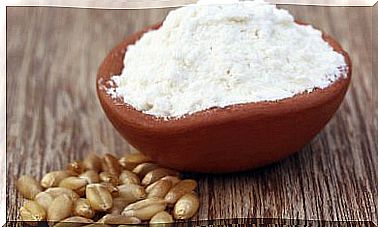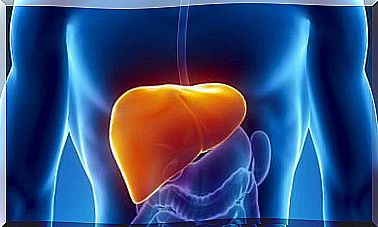Why Are We Laughing?
We don’t just laugh at a joke or something funny; Laughter helps us to convey affection, relieve tension or convey positive emotions. The most interesting thing is that when we laugh we get health benefits.

Laughter is something present in the human being practically from birth, since it appears at 3 months of life. It is a unique and personal gesture that we associate with humor and happiness. However, do we know why we laugh?
Throughout history, scientists have focused heavily on the mechanism of issues such as anxiety, depression, or a host of other problems. However, few have dared to decipher why we laugh and what happens when we do.
Laughter is a complex gesture that activates around 400 muscles in our body. In addition, it has many beneficial health effects, such as the release of endorphins. They are hormones that are related to happiness and also act as a natural pain reliever.
Therefore, in this article we will explain why we laugh and what mechanisms are set in motion in our brain. We will also talk about the benefits of laughter and how to practice it.
Why are we laughing?

When we laugh we make an instinctive gesture. That is, laughter is a gesture that does not require any learning. As we have already mentioned before, from a very young age we begin to show this gesture, around 3 months after birth.
At this time in our life, laughter is related to the feeling of comfort and security that we experience with our parents or caregivers. However, the reasons why we laugh change as we grow and mature.
We laugh at humorous situations, but it is by no means the only time we use laughter. It is a gesture that allows us to transmit positive emotions, reduce tension, show affection … We can even laugh out of nervousness.
Interestingly, we are not the only species that is capable of laughing. Many other animals have been shown to have a laugh similar to ours, such as orangutans. Also, the latest research has shown that women laugh more than men.
What is the mechanism?
The explanation of why we laugh is complex. Different brain circuits are involved in the production of laughter. The most important part of this mechanism is the limbic system, which is a part of our brain related to emotions.
The simplest way to understand it is as follows: first, we perceive something that our mind finds incongruous, that is, something that was not expected. Our brain, before this, triggers the reward circuit.
The reward circuit is activated by releasing dopamine, which, in addition to providing us with a pleasant sensation, allows all the nerve and muscle impulses that make us laugh to be activated.
Both this reward circuit and dopamine are involved in many other processes; for example, in sex, addictions, relationships, and so on. Therefore, there is such a relationship between laughter and humor and these aspects.
What benefits do we get when we laugh?

According to studies, when we laugh we can achieve many beneficial aspects for our health. First of all, it has a great impact on our mental and emotional well-being. Laughter reduces stress and improves our perception of the world.
However, the benefits are not only emotional, but also help to improve our physique. For example, it has been seen to stimulate the immune system, raising our defenses. Other benefits are:
- Decreases the perception of pain.
- It increases the heart rate and is equivalent to an aerobic exercise.
- Increases the flow of oxygen in the brain.
- It helps to tone the abdominal muscles and this, in turn, promotes digestion.
- Improves social relationships and our management of emotions such as anger.
In conclusion
When we laugh, for whatever reason, we set in motion a series of circuits in our brain that are very complex. The result of laughter is numerous benefits for our health, both physical and mental.
Laughing people are believed to have fewer cardiovascular problems and a longer life expectancy. In addition, it is related to hormones such as dopamine, which have a close relationship with pleasure and happiness.








